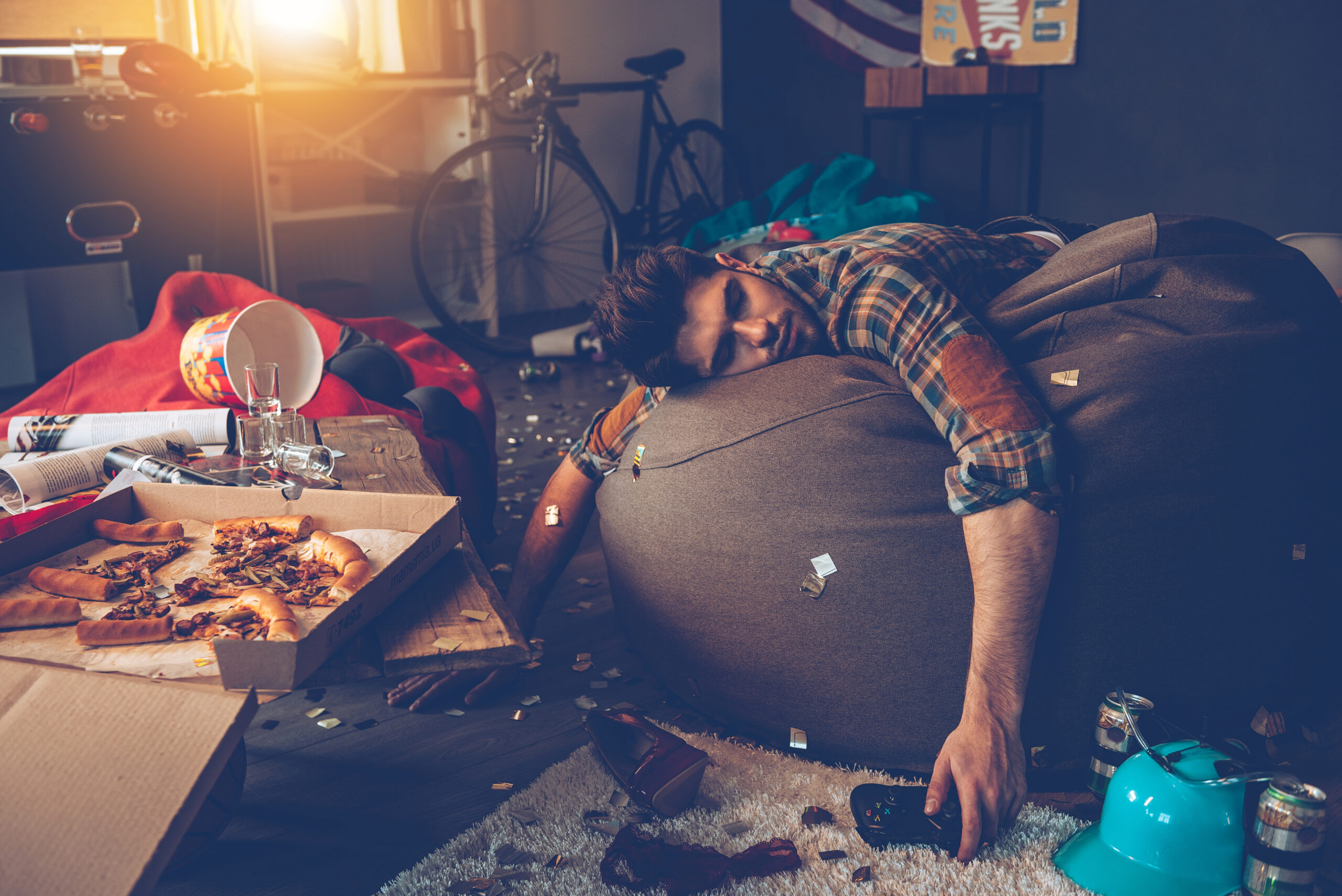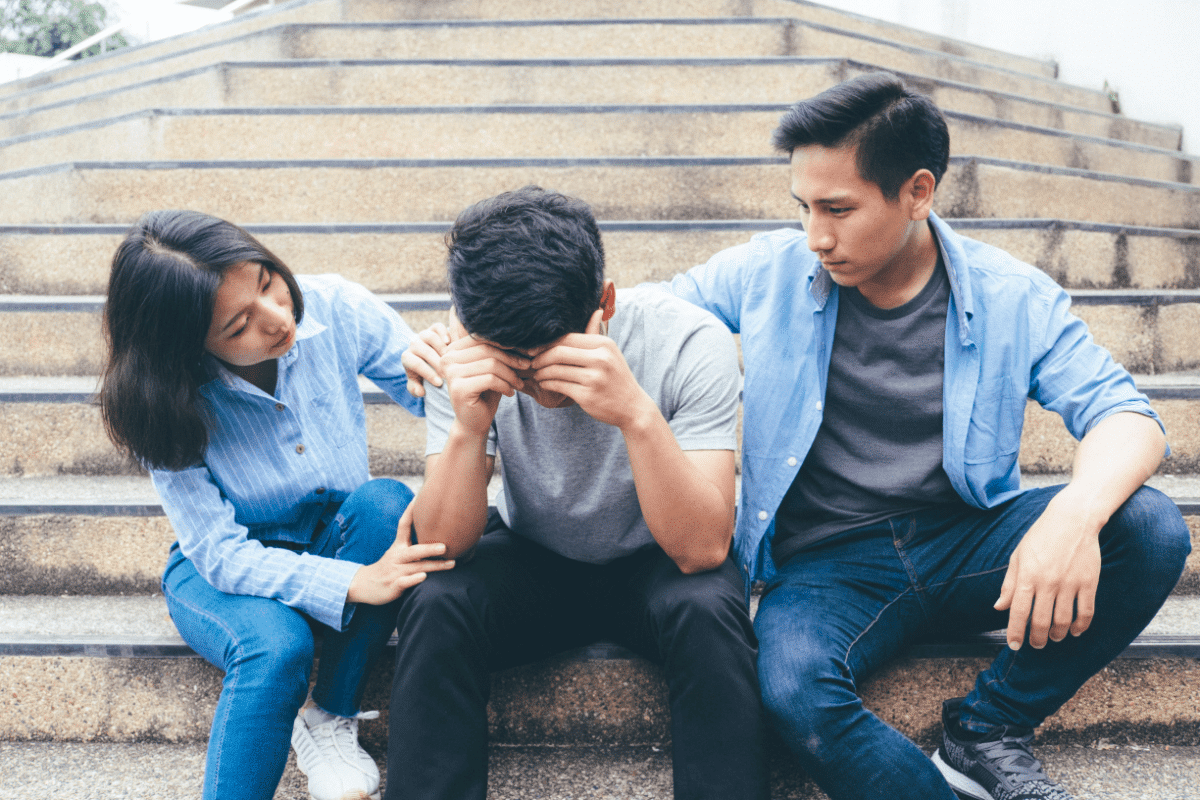
Teenage years can be a whirlwind of emotions and experiences. Amidst this, partying often becomes a common social activity.
However, for some teens, partying may be more than just a fun escape. It could be a mask for deeper issues, like depression.
Depression is not just a phase or mood swing. It’s a serious mental health issue that affects many teens today.
Understanding the link between teen depression and partying is crucial. It can help parents and guardians identify potential problems early on. In this article, we discuss this complex issue. We’ll explore the signs, the reasons, and how to support teens facing these challenges.
Learn more about our teen depression treatment or call 877-983-5144.
Understanding Teen Depression
Depression in teens is more than just occasional sadness or moodiness. It’s a persistent feeling of despair that can interfere with daily life.
It’s important to note that teen depression is quite common. According to the American Academy of Child and Adolescent Psychiatry, about 5% of children and adolescents suffer from depression at any given point in time.
Depression can manifest in various ways in teenagers. Some may appear sad or irritable, while others may seem perfectly normal on the surface.
Here are some common symptoms of teen depression:
- Persistent sadness or hopelessness
- Irritability or anger
- Withdrawal from activities and people they once enjoyed
- Changes in eating and sleeping habits
- Difficulty concentrating
- Feelings of worthlessness or guilt
- Frequent complaints of physical ailments such as headaches and stomachaches
- Thoughts of death or suicide
Recognizing these signs early can be crucial in getting the necessary help and support for your teen.
Does My Teen Have Depression? – Take Our Free Test Today
The Link Between Partying and Depression in Teens
Depression can lead some teens to seek relief in partying and substance use. This behavior can serve as a temporary escape from their emotional pain.
Research suggests a strong link between teen depression and increased partying behavior. Teens may use parties as a platform to fit in, feel accepted, or forget their worries.
However, this coping mechanism can be harmful. The temporary relief provided by partying often masks the underlying issue, allowing the depression to worsen over time.
Understanding this link can help parents and guardians identify when partying and underage drinking becomes a problem for their teen. It’s crucial to approach this issue with empathy and open communication.
Recognizing the Signs of Teen Depression and Substance Abuse
Recognizing the signs of teen depression and substance abuse is the first step towards helping your teen. Depression in teens can manifest in various ways, often different from adult depression.
Common symptoms of depression include persistent sadness, loss of interest in activities, and changes in sleep or appetite. You may also notice a drop in academic performance or withdrawal from friends and family.
Substance abuse in teens can also be hard to spot. It often starts subtly, with changes in behavior, mood, or physical appearance.
Here are some signs to look out for:
- Unexplained changes in behavior or grades
- Secretive behavior, like hiding phone calls or messages
- Unusual smells on breath, body, or clothing
- Changes in friend groups
- Loss of interest in hobbies or activities
- Unexplained need for money
Remember, these signs don’t necessarily mean your teen is abusing drugs or alcohol. They could be indicators of other issues, like stress or anxiety. However, if you notice several of these signs, it’s worth having a conversation with your teen about their mental health and potential substance use.

Why Do Some Teens Turn to Partying as a Coping Mechanism?
Teens may turn to partying as a way to escape their feelings of depression. The social aspect of partying can provide a temporary distraction from their emotional pain.
Substance use, often a part of these parties, can also offer a temporary relief. Alcohol and drugs can numb feelings of sadness, anxiety, and loneliness that come with depression.
However, this is a dangerous path. While partying and substance use may provide a temporary escape, they do not address the underlying issues. In fact, they often exacerbate the problem, leading to a vicious cycle of depression and substance abuse.
The Risks of Using Partying as an Escape
Partying and substance use may seem like a quick fix for teens dealing with depression. However, these behaviors come with significant risks.
Substance use can lead to addiction, health problems, and legal issues. It can also worsen depression symptoms over time.
Moreover, partying often involves risky behaviors and situations. These can lead to accidents, injuries, and other negative consequences. It’s crucial for parents to understand these risks and discuss them with their teens.
How to Talk to Your Teen About Depression and Partying
Starting a conversation about depression and partying with your teen can be challenging. It’s important to approach the topic with sensitivity and openness.
Avoid judgmental language and show empathy towards your teen’s feelings. Make sure they understand that you’re there to support them, not to punish them.
Encourage your teen to share their thoughts and feelings. Listen actively and validate their experiences. This can help build trust and make them more comfortable discussing these difficult topics.
Supporting Your Teen: Steps for Parents and Guardians
As a parent or guardian, your support can make a significant difference in your teen’s mental health journey. It’s crucial to create a safe, supportive environment at home where your teen feels comfortable expressing their feelings.
Stay involved in your teen’s life, but respect their need for independence. Encourage healthy habits like regular exercise, a balanced diet, and adequate sleep. These can help combat depression and reduce the appeal of partying as a coping mechanism.
Remember, it’s okay to seek professional help if your teen’s depression or substance abuse continues. Therapists, counselors, residential treatment centers can provide valuable resources and guidance.
Professional Help and Resources for Teen Depression and Substance Abuse
If your teen’s depression or substance abuse persists, it’s important to seek professional help. Therapists and counselors can provide effective treatment strategies, including cognitive-behavioral therapy and medication if necessary.
There are also numerous resources available for parents and teens dealing with these issues. Residential programs like Beachside Teen Treatment Center work with parents and teens to build personalized plans that can help with the mental health issues they’re facing.
Remember, early intervention can prevent the escalation of teen depression and substance abuse. Don’t hesitate to reach out to healthcare professionals if there are warning signs and you’re concerned about your teen’s mental health.
Fostering a Supportive Environment for Your Teen
In conclusion, understanding the link between teen depression and partying is crucial for parents and family members. It’s important to foster a supportive environment where your teen feels comfortable discussing their feelings and experiences.
Remember, patience and understanding are key in supporting a teen’s mental health journey. Celebrate their progress, no matter how small, and reassure them that they’re not alone in their struggles.
Lastly, ongoing education about mental health and substance abuse can help both you and your teen navigate these challenging issues. Stay informed, stay supportive, and remember that help is always available through our mental health professionals at Beachside Teen Treatment Center.




